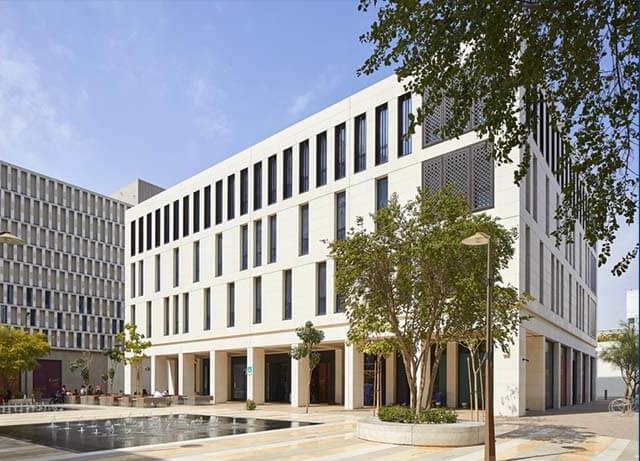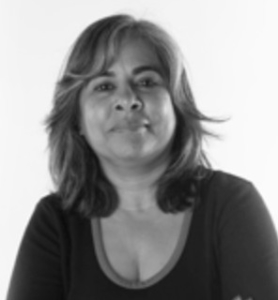
HEC Paris in Qatar campus in Doha.
HEC Paris in Qatar, a regional campus of the European business school, recently announced the launch of a new “Business Research Laboratory” dedicated to writing in-depth case studies focused on the Gulf Cooperation Council region.
It is Qatar’s first dedicated laboratory of its kind and HEC Paris’ first internationally based hub. The lab, at HEC’s Doha campus, will develop local and regional case studies and teaching materials for its executive MBA, specialized master’s degrees, and corporate programs, according to a release. The GCC is an economic union comprising Qatar, Bahrain, Kuwait, Oman, the United Arab Emirates, and Saudi Arabia.

Deval Kartik
“There has been rapid growth and development in business in this region over the last 50 years or so, much of it undocumented,” Deval Kartik says in this HEC Paris interview. Kartick is the lead case writer at HEC Paris in Qatar and will lead the laboratory.
“As businesses and innovation flourish and expand here, drawing in international talent from all over the world, new ideas, practices and solutions are emerging with strong educational potential for HEC Paris program participants – but also highly valuable learning and insights for the many other stakeholders in our ecosystem, from governments and policy-makers to business partners and investors, as well as the international academic community.
“We are in a privileged position to document the real-world business stories in the Gulf and shed compelling new light and understanding on this region.”
WRITING CASE STUDIES RELEVANT TO GCC
Harvard Business School pioneered the case method in 1921 to train its MBAs, and over the next 100 years the method spread to business schools around the world.
“Cases expose students to real business dilemmas and decisions,” Nitin Nohria, the former dean of Harvard Business School, wrote in 2021 for the case method’s 100-year anniversary. “Cases teach students to size up business problems quickly while considering the broader organizational, industry, and societal context. Students recall concepts better when they are set in a case, much as people remember words better when used in context. Cases teach students how to apply theory in practice and how to induce theory from practice. The case method cultivates the capacity for critical analysis, judgment, decision-making, and action.”
HEC Paris in Qatar, meanwhile, with more than a decade of experience in international business experience in the Middle East, has unique access to companies and organizations in the region.
“Our extensive work shoulder-to-shoulder with organizations on custom programs means that we have the knowledge, insights and the expertise to fully capture and document the most relevant and compelling business cases in the GCC region,” Kartik says.
“You cannot overstate the importance of being in-situ, and having a truly consolidated presence in this region.”
‘FROM THE REGION, FOR THE REGION’
Beyond writing cases for its own programs, the lab will export GCC regional case studies for wider audiences, particularly in Europe and the U.S., where there is strong interest in management issues in the region, says dean Martin de Holan.
“Developing learning material from the region and for the region helps ensure the relevance of our teaching for learners based here,” adds Joshua Kobb, executive director of partnerships and growth. “At the same time, we are able to advance our teaching mission to help the global business community understand the context and dynamics of Qatar and the region.”
HEC Paris in Qatar plans to ramp up its case production this year to add to its collection of already published cases from the region. The school’s custom programs are a major focus, and provide a rich source of primary material, Kartik says. They’ll be looking at everything from small business to some of the biggest players in gas and oil.
“With major events like FIFA on the horizon, we’re also going to be focused on documenting business cases in travel and tourism and airports,” Kartik says.
“Ours is not the only institution in the Gulf that is producing real-world cases, but the space we occupy in the business and learning community here means we have access not only to valuable primary material from within the business, but also to leaders and decision-makers at the very highest echelons of many of the most influential and game-changing organizations in our region.”
DON’T MISS: WHY FINANCIAL TIMES RANKED THIS B-SCHOOL THE BEST IN EUROPE — AGAIN AND Q&A WITH PROFESSOR ALEX EDMANS: THE PURPOSE OF A FINANCE PROFESSOR





Questions about this article? Email us or leave a comment below.